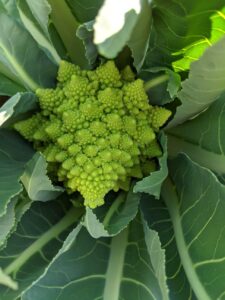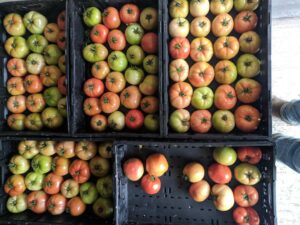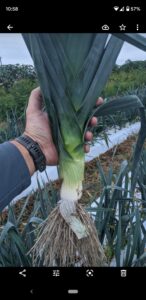Buy Citrus

Farmer Mike U-Pick’s Sustainable Farming Practices
What is Farmer Mike’s U-Pick
Farmer Mike’s U-Pick is a small 250 acre family farm based in Bonita Springs FL. Farmer Mike has been growing fruits and vegetables in south Florida for over 35 years. Farmer Mike and Farmer Jim (His Father) moved to south florida in the early 1970’s from Virginia where Farmer Jim had previously farmed all of this life. Farmer Jim raised Farmer Mike and his brothers on their Apple Orchard where the brothers all learned the value of hard work, dedication, and how to run a tractor at a very young age. Farmer Jim’s passion was passed on to the family and still shines through their hard work everyday.
What are Farmer Mike U-Pick’s Farming Practices?
We are a Non-GMO Sustainable Farm, our decisions are based upon protecting the environment, protecting our resources (soil and water), and protecting our workers. Sustainable Farms utilize crop diversity, crop rotation, soil conservation, Integrated Pest Management, Water Management and Weed Control to achieve a productive and clean growing environment.
Farmer Mike’s believes in clean and healthy fruits, vegetables, flowers, soil and water. We firmly believe Sustainable farming is the best way to accomplish these goals. Sustainable farming is the production of food using techniques that protect the environment, public health, humane communities and animal welfare. Most food is no longer raised on sustainable farms, many small farms like ours are threatened by industrial farms and imported products because they can produce low cost food at the expense of their workforce and the environment.
Farmer Mike’s company motto is “Stay Local and Stay Fresh” for a reason. Our goal is to provide the freshest product we can for you and your family. Farmer Mike’s also believes our hard-working team is just as important a resource as our environment. When you shop with Farmer Mike’s you are supporting your local community by supporting our dedicated team. We provide a working environment that fosters education and growth while also allowing for diversity to flourish. When you come to our farm and support our mission by shopping with us you are supporting all of our hard-working team members that live in your local community.
Crop Diversity
Farmer Mike grows over 100 different varieties of fruits and vegetables on our farm including many heirloom varieties that our customers have come to love. We also grow over 50 different varieties of wildflowers here on our farm. The wide range of crops we grow on the farm offer an equal amount of benefits for our customers as they do for the soils we grow on. Crop diversity allows for longer and more complex crop rotations naturally increasing nutrients in the soil and crop yields.
Integrated Pest Management (IPM) Beneficial Insects
Our flowers grown on the farm are our best tool to naturally suppress insect populations by enabling the population of beneficial insects to flourish. Beneficial insects are those that prey on crop deteriorating insects such as lady bugs, minute pirate bugs, green lacewings and there are many more. They prey upon aphids, whiteflies, thrips, spider mites etc. that destroy crops. As you enjoy our farm you will see wildflowers planted all around the farm this helps harbor the beneficial insects to allow them to keep the pests under control. The hundreds of thousands of bees you will see buzzing around the farm also benefit from the nectar of the flowers we grow. Take a moment the next time you are out in our fields especially the flower fields and listen for the buzz of the bees flying bye you and appreciate them, without these powerhouse pollinating machines the food we grow wouldn’t be possible.
Crop Rotation
Each season we rotate our crops. What was once our Corn Maze field or a tomato field is now growing cucumber, broccoli, green beans and beets. This helps naturally regulate health, integrity, and fertility into the soils.
Water Management
Water is the most essential natural resource for farmers, we aim to conserve it whenever possible. We use a reduce-volume drip irrigation system for all the crops we grow. Through drip irrigation we can cut our water usage by more then 50% throughout the entire growing season on the farm.
Weed Control
To keep weeds under control we use plastic mulch on raised beds. You will see us out in the fields weeding and hoeing by hand throughout the season to help suppress the weed populations on the farm to increase the plants opportunity to produce marketable fruit.
Do we Spray?
The only time we spray our fields is if we are in danger of crop failure. An all natural topical spray will be used that is formulated for that specific crop to fight the naturally occurring fungus, bacteria, virus, disease, or insect. Our topical sprays, only used when absolutely necessary, are not absorbed into the fruit or plant and naturally wear away prior to harvest. Thus deterring the threat without introducing harmful chemicals into the plants.
Interesting read:
Most organic food found at the super market comes from other countries, consumers are not informed about where their food comes or how it has been produced. Labor standards in other countries in many instances are not to the level of the united states. Many people think the term “Organic” is better without knowing why. A common misconception is that organic farms do not use pesticides when they in fact do. Typically, Organic farms are forced to apply products to their fields much more frequently as much as 5-7 times more due to the inability to combat the crop suppressing bacteria, fungus, and insects. The difference between organic and conventional farming is the types of pesticides used in the farming practice.
Certified Organic farms are regulated to only use pesticides originating from naturally occurring substances, while conventional farms use products derived from either naturally originating or synthetic substances. Another misconception is that organic pesticides are safer then synthetic although numerous studies have shown organic is no more benign then conventional. In addition, organically grown foods has a much higher rate of e-coli and salmonella contamination.















